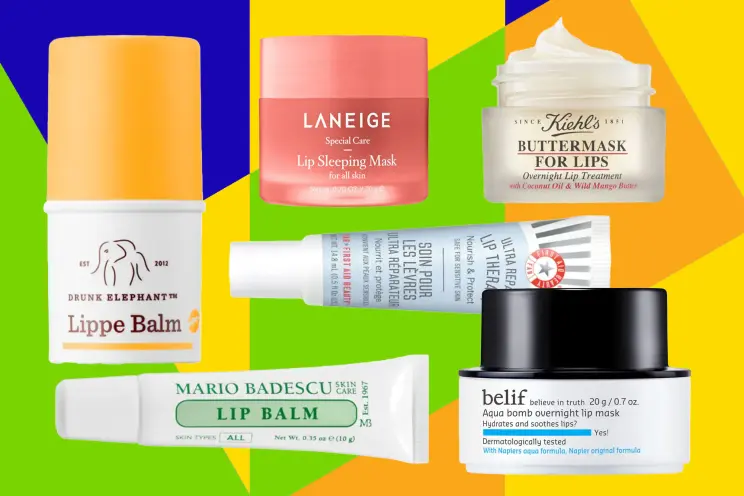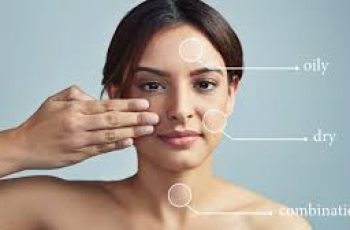What are the best lip treatments for dry lips?
Dry lips can be annoying, and unfortunately they are not something that can be cured in a day. Patience, attention, and time are key to relieving dry lips. But it’s not all doom and gloom, we’ve found the best ways to treat dry lips and now we’re sharing them with you.
What to do with extremely dry lips?
Here are some of the top tips we’ve found to help treat extremely dry lips:
Drink plenty of water
Your lips are the first to show signs of dehydration, so it’s important to drink plenty of fluids throughout the day. If you find it hard to drink that much water, you can also eat more water-rich fruits and vegetables like watermelon and cucumber.
Try moisturizing lip products
There are so many moisturizing lip products on the market, but we’ve found that lip butters that contain beeswax, shea butter, coconut oil, and olive oil can provide instant relief for chapped or severely chapped lips. You’ll also find that jojoba, rosehip, and almond oils are very moisturizing and can be applied more gently to painful lips.
Consider using a humidifier
They’re perfect for any building or room that has a lot of dry air circulating, whether it’s a home or office. Using a humidifier can moisten the air and provide needed moisture to damaged lips.
These are a good starting point for caring for and treating dry lips. By combining this with the next series of treatment steps, you will quickly and effectively relieve any ailments you may be suffering from.
How to treat dry lips on a daily basis:
Step 1
Exfoliating your lips can remove flaky dead skin, revealing younger, smoother skin underneath. There are many lip scrubs to choose from, or you can try a home recipe made with coconut oil and sugar. Simply rub the mixture onto your lips until it has almost completely dissolved, then gently rinse off the residue with warm water and pat dry with a soft towel.
Step 2
Using a lip balm every day can keep your lips moisturized and protected from drying factors such as central heating. There are also lip balms with SPF that can protect your lips from sun damage or burns.
Step 3
Finally, you can use an ultra-nourishing night lip balm. Apply a generous amount all over your lips, without worrying too much about it running over the edges, and go to bed. Your skin will be moisturized while you sleep without interrupting you from eating, talking, or licking your lips during the day.
These basic steps will help you keep your lips under control and prevent them from becoming dry.
How to Get Rid of Dry Lips Naturally?
Treating dry lips naturally is a lot easier than you think. Trying at least one of these natural remedies will work wonders.
Rose Water and Honey
Honey and rose water prevent chapped lips and provide deep moisturization to your lips. Simply mix honey and rose water and apply directly to your lips. Leave it on for about 15 minutes and then rinse it off with warm water.
Coconut Oil
When you apply pure coconut oil to your lips, your lips are coated with a generous amount of vitamin E and fatty acids, which not only absorb quickly into the skin but also prevent free radical damage to the skin.
What are the best products for dry lips?
It really depends on what works for you, your skin, and your lips. There are a ton of products to choose from, which can be a bit overwhelming. As mentioned before, treating dry lips is a time-consuming and arduous task. Choose a product that contains one of the natural alternatives mentioned earlier or another more medically oriented formula.
What are the main causes of dry lips?
Unlike the rest of the skin on our body, our lips do not have sebaceous glands. This can cause lips to dry out very quickly and sometimes even chapped. Lack of moisture can make the problem worse, as can little or no humidity in the winter or too much sun exposure in the summer.
You may also find yourself unconsciously licking your lips too often, which only makes things worse as the saliva on your tongue takes away moisture from your lips, causing them to become even drier and chapped.
What are the signs of dry lips?
The most common problem with dry lips is actually dehydration. Your lips will first dry out if you don’t drink enough water during the day. When we are dehydrated, our bodies pull water from different parts of the body and sometimes more help is needed, using a moisturizing lip balm or a natural alternative like almond oil or shea butter to replenish dry skin and make your lips more comfortable and your water intake will be up quickly.
Can I moisturize my lips overnight?
Absolutely! Nighttime is considered the best time to moisturize lips because this is when we are not being affected by central heating, bad weather, sunlight and other environmental pollutants. You will also find that you can apply a very large amount because you don’t have to worry about licking the product or talking to it, eating it or drinking it.
So, these are the best lip treatments for dry lips. Here are some simple yet effective options so you can try out the right formula to care for your lips most effectively. It will have you smiling in no time without having to worry about your lips becoming painfully chapped!
DQH Can I use salicylic acid first and then vitamin C?
It’s easy to create a skincare routine, but knowing how to use it is another thing entirely. In most cases, if you’re not getting the desired skin results, it could be due to the layering of conflicting ingredients. So, is it possible that salicylic acid and vitamin C are such ingredients? Or are these active ingredients the duo that’s been missing from your skincare routine? If you want answers, stick around because today we are going to explain the benefits of salicylic acid and vitamin C and how they can be used in your daily life.
What are the benefits of salicylic acid for skin?
Salicylic acid is one of the most commonly used beta hydroxy acids and is favored by many people with oily, acne-prone skin. This acid is derived from willow bark, and unlike its water-soluble relatives (called alpha-hydroxy acids), salicylic acid is oil-soluble, which means it can penetrate deeper into the lower layers of the skin. Once it reaches the lower layers, it can help unclog pores of excess sebum, dirt, bacteria, debris, and impurities. This results in clearer skin tones and greater definition.
Not only does salicylic acid benefit the underlying layers, but the outer surface of the skin benefits as well. When applied to the skin, salicylic acid removes the buildup of dead skin cells. This is accomplished by breaking the bonds that hold dead cells to the surface. Over time, this can cause the complexion to look dull and prone to acne, blackheads, and other blemishes.
If you’d like to learn more about salicylic acid and how it can improve your skin, check out this dedicated blog post from a beauty insider.
What are the benefits of vitamin C for skin?
Vitamin C is considered one of the most powerful antioxidants, which means it is very effective at fighting free radicals and preventing them from causing further skin damage. Examples of free radicals include pollution, central heating, UV rays and harsh climate. They attack proteins, fats and cell membranes as soon as they come into contact with the skin, causing signs of premature aging such as fine lines and wrinkles as well as hyperpigmentation, flaky patches of skin and loss of elasticity.
Many people usually prefer to use vitamin C in their morning routine as this ingredient gives the complexion a radiant glow. You’ll also find that vitamin C can target areas of hyperpigmentation, plumping the skin and reducing the appearance of fine lines and wrinkles.
The thing about vitamin C is that there are a lot of outdated studies going back to the 1950s that describe vitamin C as an unstable skin component. Thanks to improvements in modern technology, this is no longer the case as all products now contain a stable form of vitamin C.
Visit The Beauty Insider to learn more about vitamin C. So please check out our blog post.
Can I use salicylic acid first and then vitamin C?
Yes, you absolutely can. In fact, it’s thought that using salicylic acid before using vitamin C ensures it penetrates faster and works faster.
This is an efficient way to utilize two power sources, and the reason has to do with pH. For example, the skin’s natural pH is about 4.7, making it slightly acidic. Salicylic acid and vitamin C are also both acidic, and you’ll find that vitamin C is absorbed quickly into the skin. Therefore, using salicylic acid beforehand can increase the acidity of the skin and allow vitamin C to penetrate into the skin faster.
While this is considered an effective way to combine two powerful ingredients, you need to be aware of your skin type and how it reacts to certain active ingredients. Even people with perfect, normal skin can experience skin sensitivity and irritation. Therefore, always consult a doctor or dermatologist before using any new products on your skin.
It’s also important to follow skin application rules. In this case, you need to use the product correctly to ensure you get the best results for your skin. If you’re not sure what I mean, the basic rule for skin is to start with the thinnest consistency and work your way up to the thickest consistency. This prevents a barrier from forming on the surface, preventing other active ingredients from penetrating the skin.
Can I use salicylic acid at night and vitamin C in the morning?
Yes, absolutely, this is considered the most effective way to get returns without any adverse side effects. This is because there is enough time between applications to ensure that the skin’s pH levels return to balance.
You’ll also find that Vitamin C is rich in antioxidants and is perfect for use in the morning to ensure your skin is protected and looking its healthiest. Due to the small size of salicylic acid molecules, it is an acid that is able to reach the deepest parts of the skin. While this is effective at keeping skin clear, it also increases the risk of irritation and photosensitivity. Therefore, many people prefer to use powerful BHAs in their evening routine without exposure to UV rays, pollution, or harsh weather.
Warning: If you avoid using sunscreen every day, none of these ingredients will do what your skin needs. The combination of chemical peels and powerful ingredients increases the risk of further damage to the skin’s surface. Use SPF 50 every day to keep your skin protected and your lipid barrier healthy, even on cloudy days, keeping your skin in top condition.



